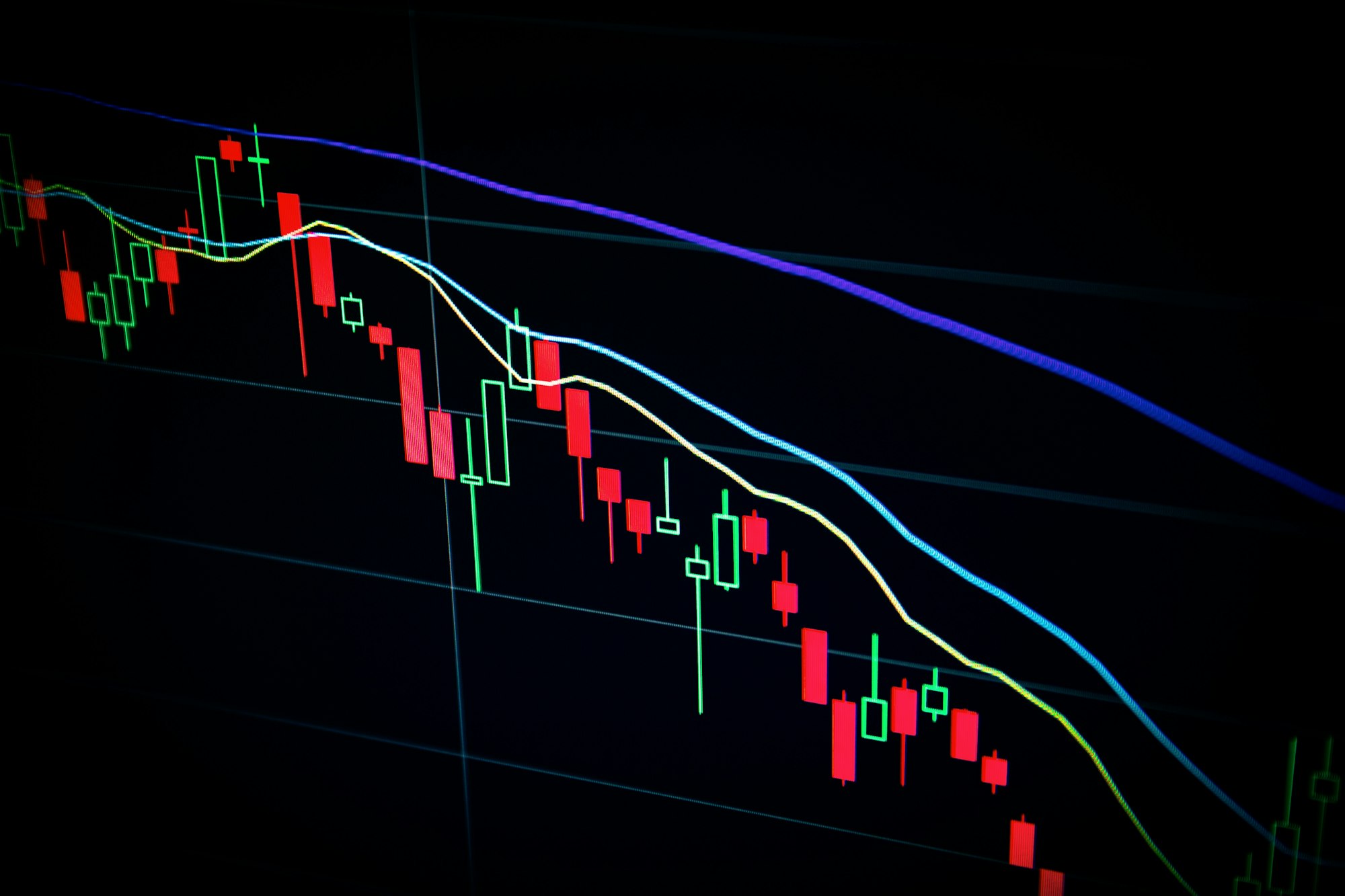Nlaw's review of 2022, and what to expect in 2023
In this article, we will take a look at how accurate Nlaw's 2022 predictions were and what to expect in each of these areas for the upcoming year.

As we move into uncertain 2023, Nlaw’s yearly review and forecast are now more important than ever. With the world facing unstable and challenging times, it is essential that we stay up to date with the latest predictions in law, business, technology and finance.
Nlaw will continue to publish a short yearly review and forecast moving forward into the next year. Through this yearly report, founders and investors will hopefully find it easier to prepare for the future and navigate their companies.
Nlaw has limited their predictions for 2023 to five key topics: Mergers & Acquisitions (M&A), Venture Capital (VC), Startups, Europe, and Crypto. In this article, we will take a look at how accurate Nlaw's 2022 predictions were and what to expect in each of these areas for the upcoming year.
TLDR;
Most of our predictions for 2022 came true. We were partially correct in forecasting further VC growth (it continued to grow for half of the year, and ended lower than in 2021, but higher than in 2020). We were correct to forecast further fragmentation of VC in Europe, the return to the office, and the crypto space. We got it totally wrong on IPOs.
Our predictions for 2023:
- We have not bottomed yet - there is more negative sentiment ahead.
- VC growth in Eastern Europe will outpace growth in Central and Western Europe.
- Brexit dreams will finally and completely die.
- The AI debate will remain hot throughout the year.
- MiCA will bring Crypto business to the EU.
Did our 2022 predictions come true?
They did. Sort of.
Nlaw’s predictions for 2022 have proven to be mostly accurate. This success is honestly a result of the predictions being quite general and not overly daring.
Our 2022 predictions (and outcomes) were:
- VC growth in Europe will continue. We were partially correct. VC continued to grow in q1 and q2, and slowed down afterwards, finishing below the 2021 numbers.
- VC in Europe will remain fragmented (in 2022). Yes, VC in Europe remained fragmented across the continent, with London, Berlin, and Paris running the show.
- Crypto is here to stay. Yes. Crypto is still here and doing quite well considering the macroeconomic situation and FTX scandal.
- The return of the office space. Hybrid workspace have become predominant. Many companies, including tech, have been doing all they can to get their employees back to the offices.
- The number of tech IPOs will increase. No. We got it totally wrong. The IPO market in Europe has died.
Lets break them down one by one.
VC grew. Sort of. Not really. We were correct in forecasting the growth of VC in Europe. Sadly, we were only correct for 6 months, and then things went south. 2021 was a remarkable year for the European tech ecosystem with the total amount of venture capital deployed overshooting investment of $100B for the first time. It is currently estimated that the amount deployed in 2022 will be around $85B. I warmly recommend reading Atomico's State of European Tech Report. The mid-year slowdown in investing can be attributed to the macroeconomic environment, a pullback of American investors, and extra caution on the part of European investors. This drop represents a year-on-year decline of 18%. But at the same time, in 2022 was still double of the investment amount in 2020.
VC did remain fragmented in Europe. Nothing has changed on this topic, and it does not look like it is about to change. London, Paris and Berlin still run the show. Out of the mentioned $85B, $28B was deployed in the UK, $14,6B in France, and $10,8B in Germany. This means that these three countries amount to 63% of all venture capital deployed in Europe. But, we can start to see shifts. Regarding deployed venture capital, Croatia grew by 439%, Iceland by 359%, Portugal by 235%, Greece by 87%, and Switzerland by 57%. If some grow, others fall. Netherlands retracted for 54%, Germany for 43%, Sweden for 41%, Norway for 40%, and Lithania for 38%. It might be worth mentioning that the UK dropped for 22%, and Italy grew 56%.

Crypto is still here. Like other markets, Crypto has also been hurt badly in 2022. Bitcoin started year 2022 at $46,300, and is trading today at $16,800 (which equals a drop of 64%). S&P500 started year 2022 at $4,800 and is trading today at $3,845 (which equals a drop of 20%). In addition to hardening monetary measures, the end of cheap loans, inflationary pressures, and the general fear of an upcoming recession, Crypto was hit by the collapse of Luna, USDT, and FTX. And it's still here! Amazing in a way.
Employers were working hard to get employees back to the offices. We correctly assumed that companies, which were not by design remote companies, will want to bring ther employees back to the offices. Most companies opted for a hybrid workspace, meaning that, subject to certain limitations, employees can choose between working from home or the office. Some companies put a hard stop to remote work.
The number of tech IPOs did not increase. We thought the trend would continue, as 2021 brougth a record high of 86 European tech IPOs! How wrong where we. IPOs have been one of the biggest casualties of the 2022 markets. There have only been three tech IPOs with a market cap of more than $1B in Europe and the US this year. This will have a significant negative effect on the European VC system. Liquidity will not be returning to investors at the expected pace.
Our predictions for 2023
Also our hopes.
This year's predictions deserve another general comment. Due to the nature of our work, we are focused on sharing predictions and comments related to M&A, Venture Capital, and Startups sectors in Europe. However, geopolitical issues such as Russia's invasion of Ukraine may also affect business development. While we have decided to refrain from putting forward predictions regarding the war, we hope that peace will be restored in Europe during 2022.
We have not bottomed yet - there is more negative sentiment ahead.
As we move further, we believe that the stock market and cryptocurrencies may not have seen their lowest points yet. Central banks are likely to continue increasing interest rates, and high inflation rates in Europe and America seem to continue. This could also make venture capital investments harder to come by, as financiers become more conservative with their funding decisions. The uncertain political climate coupled with financial market volatility will have a direct impact on investment activities such as mergers and acquisitions or raising venture capital funds. We currently do not see any growth drivers, which could overturn the trend. We therefore expect to see more market downtrend movements at least throughout the first half of 2023.
VC growth in Eastern Europe will outpace growth in Central and Western Europe.
In the coming year, we expect venture capital growth in Eastern Europe to outpace that of Central and Western Europe. This trend is due to higher returns, an untapped market, and a spillover effect from successful examples. Stories like Rimac, Infobip, UI Path and numerous others are attracting talent and capital. New VC funds are coming to the market in the next year, and an increasing number of smart individuals wish to build their startups. Early employees of successful projects have made a lot of money, and they wish to reinvest it regionally in what they know best - startups. Eastern European countries have been particularly attractive to investors due to their lower valuations and faster economic growth relative to other parts of Europe. This offers investors more potential for higher returns than in other more developed regions. But low valuations are not the only factor. With a growing population of aspiring entrepreneurs and access to world-class engineering talent, the region has an increasing capacity to build attractive companies. With a large amount of dry powder available, CEE VC funds are well-positioned to take advantage of this opportunity.

Brexit dreams will finally and completely die.
Here we have it - Brexit! The long-awaited process, which was said to make Britain great again, the best place to live, and do business, and present a model of general awesomeness! Continental Europeans, and also many Brits, were shocked to see the results of the referendum back in 2016. The withdrawal was affected in January 2020, and it has been nothing else but comedy since. Trucks have been stuck at customs check points, and the country has been struggling to find enough workforce. The NHS has not gotten any better, and prime ministers were moving in and out of Downing Street 10 on a monthly basis. One of them almost crashed the sterling with its tax reform. It is unclear what commercial or business advantages Britain plans to gain now that it has left the bloc. This could impact investor confidence and facilitate growth. While we would not dare to bet against England, it seems that the dreams of an easy transition after leaving the EU are unlikely to materialise. Instead, they face an uncertain future that raises many questions about their economic prospects going forward.
The AI debate will remain hot throughout the year.
A recently launched Chat GTP caught the attention of the public and sparkled ideas and dreams. Even the taxi drivers tried it out and were happy to share a list of all the professions, which are about to die. As technology continues to evolve, the debate around artificial intelligence (AI) is only going to get louder. On the one hand, some people believe that AI could usher in an era of unprecedented automation and cost savings. On the other hand, there are those who fear that widespread adoption of AI could lead to job losses and increased inequality. In addition to these two camps, there is also a growing group of people who believe that AI needs to be regulated to protect consumers from potential misuse or abuse by companies. The challenge for businesses regarding taking advantage of AI's capabilities is finding profitable business models based on its use. At the same time, businesses should consider investing heavily in ethical considerations when exploring how they can benefit from AI-driven solutions. Nlaw has implemented different AI-powered tools in its operations already some years ago. While it does benefit our productivity, we are also exciting helping out our clients with the legal challenges, brough up by use of AI and machine learning models.

MiCA will bring Crypto business to the EU.
MiCA, or the Markets in Crypto-Assets Regulation, is a new set of regulations from the European Union that will bring order to the cryptocurrency industry. This legislation is designed to create a level playing field for all businesses and exchanges, as well as protect users from potential fraud or abuse. MiCA is introducing a set of rules governing the operations of exchanges, custody service operators, and stable tokens. MiCA introduces the definitions of crypto assets, crypto-assets services providers, and different types of tokens. Taking that into regard, it introduces different sets of rules. The introduction of MiCA marks an important step forward for the cryptocurrency industry in Europe, bringing clarity and legitimacy after years of regulatory uncertainty. This will create a friendlier environment for businesses and exchanges, while giving consumers more confidence when investing in digital assets or engaging in crypto trading activities on regulated platforms. This will help to boost the legitimacy of the cryptocurrency industry and give consumers more confidence when buying digital assets or participating in trading activities on regulated platforms. In turn, this could lead to more crypto companies being built out of the EU, and grow the industry.




